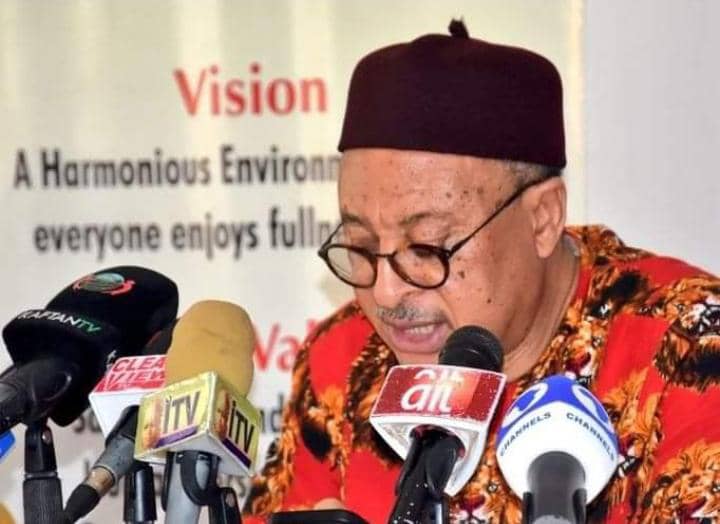Political economist, Prof. Pat Utomi, has unveiled a shadow government aimed at providing structured opposition to the administration of President Bola Tinubu — a move that has drawn sharp criticism from the federal government.
The virtual launch, held on Monday under the banner of the Big Tent Coalition Shadow Government, was described by Utomi as a “national emergency response” to what he termed governance failures under the current administration.
Shadow governments, common in parliamentary systems, are designed to mirror the cabinet structure of an incumbent government with the purpose of offering oversight and policy alternatives.
However, Nigeria operates a presidential system, making the concept unusual in its political context.
Utomi said the shadow cabinet comprises members from multiple opposition parties and civil society, with a mandate to scrutinise government policies, identify lapses, and present alternative solutions in key sectors such as education, healthcare, infrastructure, law and order, and constitutional reform.
“The recent spate of defections to the All Progressives Congress (APC) provides further evidence that all is not well with democracy in Nigeria,” he said.
“This shadow team must address issues of ethics, transparency, and integrity, which continue to challenge this government at every turn.”
The cabinet includes public figures such as rights activist Dele Farotimi, who leads the Ombudsman and Good Governance portfolio, and a wide array of professionals including Oghene Momoh, Cheta Nwanze, Halima Ahmed, and Obi Ajuga.
Utomi, a former Labour Party stalwart, criticised the Tinubu administration’s approach to the removal of petroleum subsidy, accusing it of poor planning masked as consensus.
He said the shadow cabinet would convene weekly to deliberate on policies and offer reform proposals.
But the federal government was quick to condemn the initiative. Minister of Information and National Orientation, Mohammed Idris, described the move as “an aberration” and a distortion of Nigeria’s political framework.
“At a time when our nation is set to celebrate 26 unbroken years of presidential democracy, the idea of a so-called ‘shadow government’ is an aberration,” Idris said.
“Nigeria is not a parliamentary system where such a system is practised, and there is no provision for such in our statute books.”
He added that while opposition is a key component of democracy, it must be exercised “within the bounds of propriety”, and emphasised that the National Assembly remains the appropriate forum for constructive political engagement.
The development has reignited conversations about the role of opposition in Nigerian democracy and the space for alternative political expression in the face of growing centralisation of power.
Do you want to share a story with us? Do you want to advertise with us? Do you need publicity for a product, service, or event? Contact us on WhatsApp +2348183319097 Email: platformtimes@gmail.com
We are committed to impactful investigative journalism for human interest and social justice. Your donation will help us tell more stories. Kindly donate any amount HERE




